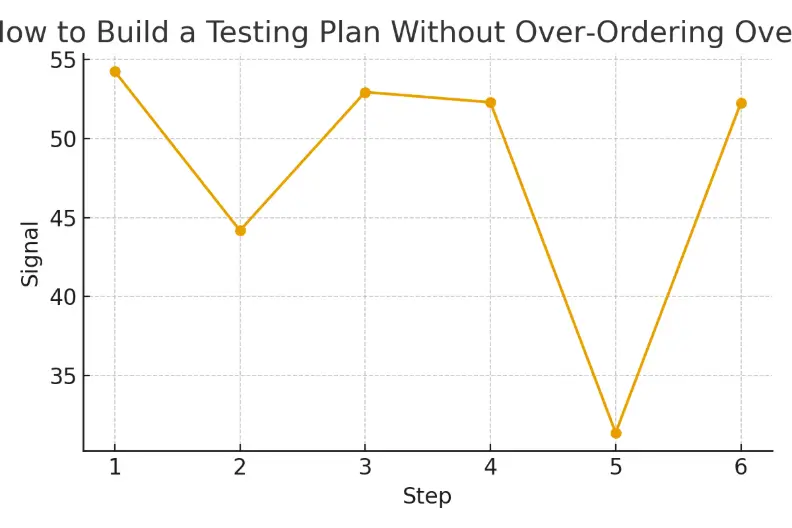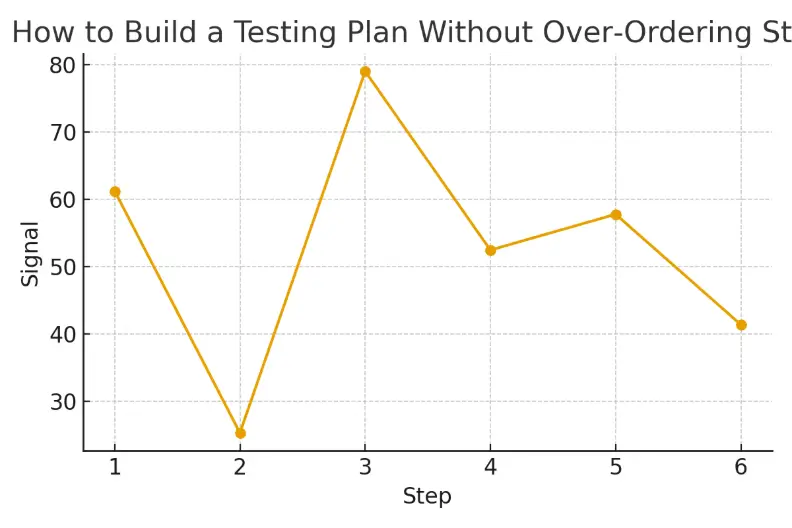
Fertility testing is often the first big step in the IVF and reproductive journey—but too much testing can create confusion, stress, and unnecessary costs. Building a testing plan without over-ordering helps keep care efficient, transparent, and aligned with your goals. This guide walks you through how to design a fertility testing strategy within the Fertility Testing & Diagnostics pathway, with insights for patients in NYC and beyond. We’ll explore who benefits most, how timing affects outcomes, realistic cost expectations, and simple rules to make your IVF journey smoother and more humane.
1) Definitions and Where This Fits in the Journey
A testing plan is your roadmap for collecting the right fertility data—bloodwork, ultrasounds, genetic panels, semen analyses—before treatment decisions begin. In IVF or other assisted reproductive technologies, it forms the foundation for individualized care.
In NYC fertility clinics, diagnostic testing usually starts after 6–12 months of trying to conceive (or sooner if there are known risk factors). The goal is to identify treatable barriers early—like ovulatory issues, sperm morphology, or uterine factors—without wasting cycles on inconclusive results or redundant tests.
2) Eligibility Signals and When to Escalate or Pause
Good testing plans are dynamic. You might start with baseline hormone testing (FSH, AMH, LH, estradiol) and a pelvic ultrasound. If these show abnormalities or unclear patterns, escalation to genetic or immunologic testing may be justified.
Pause when:
- Results are normal, but treatment hasn’t yet been optimized.
- You’re testing “just in case” without a clinical indication.
- Costs begin to exceed the value of new information gained.
Escalate when:
- Cycles fail repeatedly with good-quality embryos.
- There’s unexplained infertility despite lifestyle optimization.
- Reproductive age or ovarian reserve suggests limited time.
A well-timed pause often improves IVF success rates by focusing resources on interventions that actually change outcomes.
3) Step-by-Step Plan with Timing Checkpoints
- Initial Consultation (Month 0) – Meet your fertility specialist or reproductive endocrinologist. Discuss history, cycle length, and partner testing.
- Baseline Testing (Weeks 1–2) – Conduct hormonal panels, semen analysis, and transvaginal ultrasound.
- Targeted Diagnostics (Weeks 3–6) – Add uterine cavity imaging, HSG, or genetic carrier screening only if indicated.
- Review & Interpret (Month 2) – Evaluate patterns and decide if immediate treatment (IUI, IVF) or additional investigation is needed.
- Pre-Cycle Reassessment (Month 3) – Ensure testing aligns with your current cycle calendar and medication plan.
Timing matters. Aligning diagnostic checkpoints with ovulatory patterns can reduce false results and improve predictability across cycles.
4) Pros, Cons, and Practical Costs
Pros of Structured Testing Plans:
- Reduces duplication of lab work.
- Clarifies timing and treatment options.
- Improves communication with your care team.
Cons:
- May require coordination across multiple clinics.
- Initial out-of-pocket costs before insurance approval.
- Emotional fatigue if testing stretches over several months.
Example Cost Breakdown (NYC average ranges):
- AMH, FSH, LH Panel $150–$300
- Semen Analysis $100–$250
- HSG (Tubal Patency Test)$500–$1,000
- Genetic Carrier Screening$400–$800
- Uterine Ultrasound$200–$600
Clear cost transparency keeps expectations realistic and prevents over-ordering that leads to surprise bills.
5) Outcome Drivers You Control vs. Those You Monitor
You control:
- Test timing, cycle tracking, and follow-through.
- Choice of clinic and communication cadence.
- How aggressively you pursue optional diagnostics.
You monitor:
- Ovarian reserve trends (AMH/FSH changes).
- Response to medications.
- Lab variability in hormone levels and embryo grading.
Understanding this distinction empowers you to focus on meaningful actions that boost IVF success rates and reduce emotional strain.
6) Questions to Ask Your Clinic
- Which tests truly affect treatment planning?
- Can we sequence testing to align with my menstrual cycle?
- What’s the total cost difference between “basic” and “expanded” panels?
- How do these results guide IVF protocol choice?
- Can old results be reused, or do they expire after a certain time?
A clear, question-based discussion keeps you informed and minimizes redundant testing.
Expert Quote
“Protect timing and keep plans simple—quality improves when noise goes down.”
— Clinical Team, Patients Medical NYC
Patient Case Study
A Manhattan couple spent months on scattered testing at different clinics, leading to inconclusive results. Once they consolidated care at a single NYC fertility center, their nurse aligned testing schedules, reviewed duplicate labs, and created a simplified, timed plan. Within two cycles, they moved from uncertainty to a viable embryo transfer, saving over $1,200 in unnecessary repeat testing.
Testimonials
“The steps finally made sense.” — A.&J., Manhattan
“Costs were clear; no surprise bills.” — L., Hoboken
“Nurses replied fast with practical coaching.” — K.&V., Queens
Next Steps with Surrogacy4All NYC
- Free 15-minute nurse consult
- Upload your lab results for a second opinion
- Personalized cost breakdown for your fertility case
Clinic calendar alignment and clear diagnostic thresholds can directly improve IVF success rates. By minimizing unnecessary add-ons and emphasizing biological timing, you protect both quality and emotional well-being throughout your patient journey.
If you’re exploring advanced reproductive options such as surrogacy or egg donation, consider trusted partners like Surrogacy4All, which works with top fertility clinics in NYC to provide transparent pathways, ethical standards, and data-driven success tracking for intended parents. Contact us today!
Frequently Asked Questions (FAQs)
Q: How does a testing plan improve IVF success rates?
Ans. A structured testing plan ensures each diagnostic test has a clear purpose, reducing delays and aligning treatment with your biological window for optimal embryo quality.
Q: What are the average fertility testing costs in NYC?
Ans. Basic panels can start around $300–$600, while comprehensive testing (including imaging and genetics) may reach $2,000–$3,000 de,pending on coverage.
Q: How often should fertility tests be repeated?
Ans. Many baseline results (like AMH or genetic screening) remain valid for 6–12 months, but cycle-specific tests should align with each IVF or IUI attempt.
Q: Can over-testing reduce IVF success?
Ans. Indirectly, yes—unnecessary tests can cause stress, timing delays, and budget constraints that divert focus from evidence-based care.
Q: Does surrogacy require different testing?
Ans. Yes. Surrogacy programs include additional screenings for both the gestational carrier and intended parents to ensure safety, legal compliance, and higher success predictability.

Dr. Kulsoom Baloch
Dr. Kulsoom Baloch is a dedicated donor coordinator at Egg Donors, leveraging her extensive background in medicine and public health. She holds an MBBS from Ziauddin University, Pakistan, and an MPH from Hofstra University, New York. With three years of clinical experience at prominent hospitals in Karachi, Pakistan, Dr. Baloch has honed her skills in patient care and medical research.






